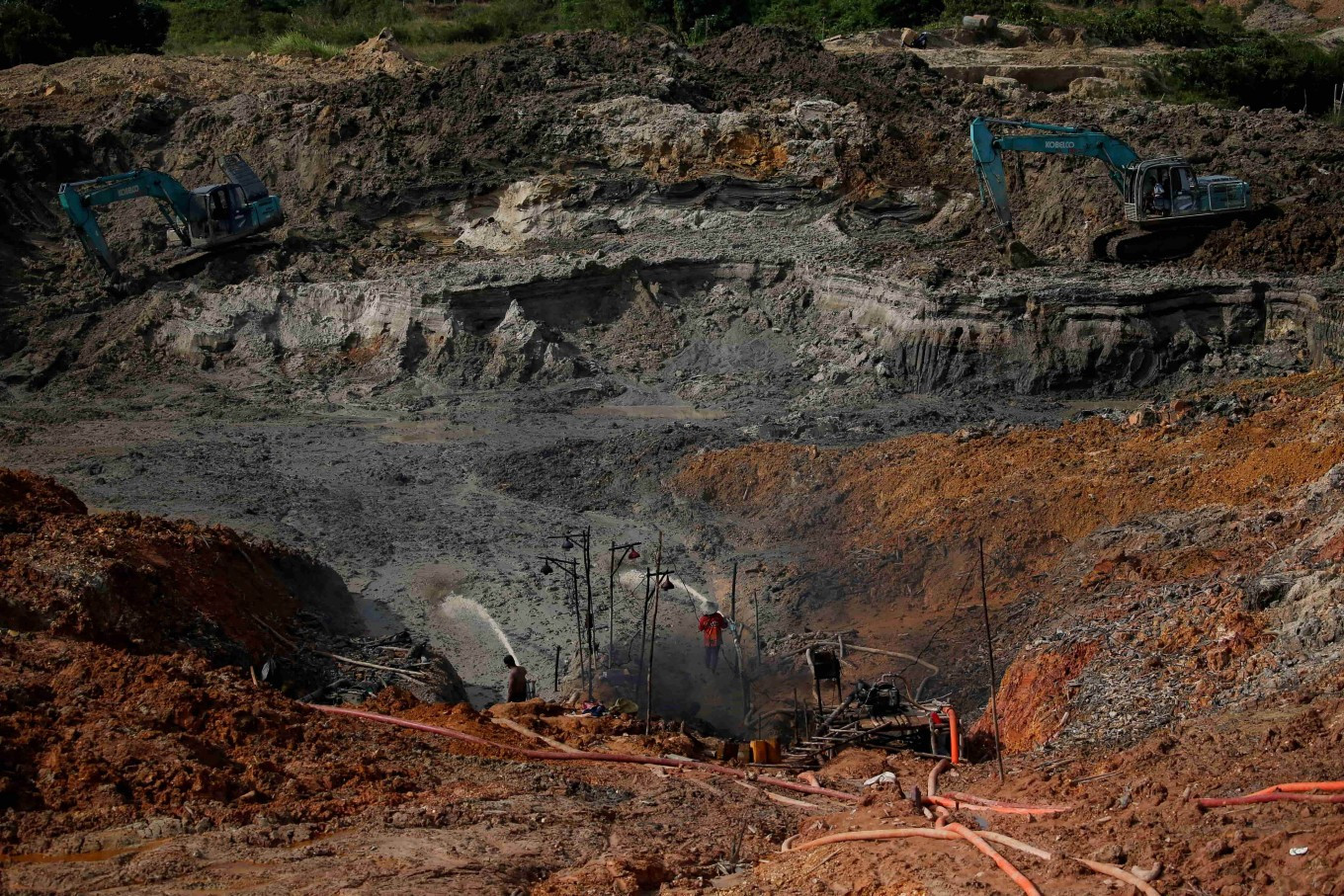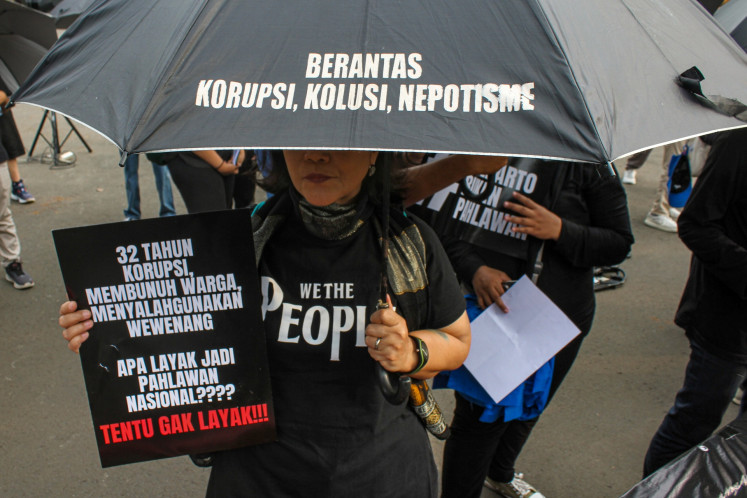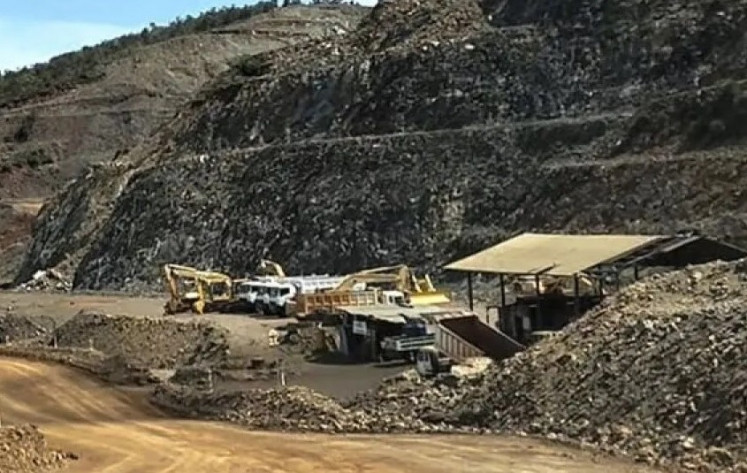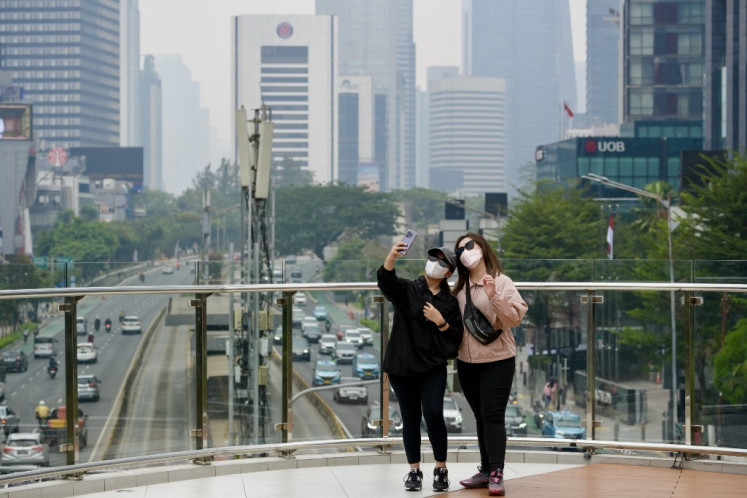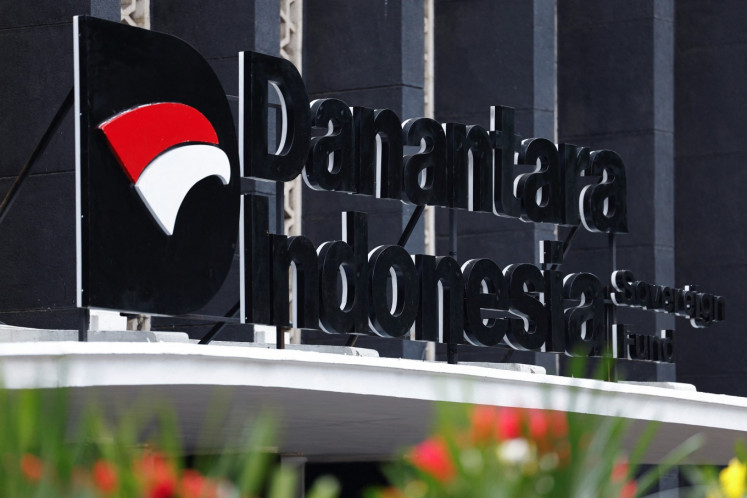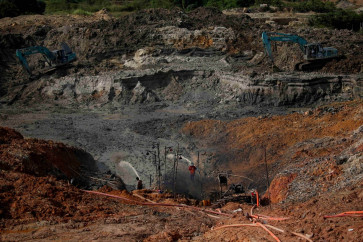Popular Reads
Top Results
Can't find what you're looking for?
View all search resultsPopular Reads
Top Results
Can't find what you're looking for?
View all search resultsAnalysis: Royalty hike plan backfires on sluggish mining sector
Change text size
Gift Premium Articles
to Anyone
T
he Indonesian government’s plan to increase royalties on 12 mining commodities, including nickel, copper, gold and coal, has sparked protests from industry players. This policy, introduced during a challenging period for the mining sector, has raised concerns about its potential to discourage investment and reduce overall tax revenue. The mining industry is already struggling with regulatory mandates and fluctuating commodity prices, making the royalty hike an additional burden that could contradict the government’s goal of boosting critical mineral downstream industries.
The proposed revision affects two key regulations: Government Regulation (PP) Number 26/2022 on non-tax state revenue (PNBP) in the Energy and Mineral Resources (ESDM) Ministry and Government Regulation (PP) Number 15/2022 on coal mining royalties. The government previously raised the maximum coal mining royalty from 7 percent to 13.5 percent of the selling price per tonne, using a progressive structure based on Indonesia’s coal reference price (HBA). In 2023, high commodity prices contributed to a 16.56 percent increase in non-tax revenue (PNBP) from coal and minerals, reaching Rp 129.1 trillion (US$7.8 billion). However, declining commodity prices have since caused government revenue from the mining sector to fall.
At the beginning of 2023, Indonesia’s coal reference price peaked at $305.20 per tonne, but by March 2024, it had dropped to $109.77 per tonne, its lowest level in recent years. With coal prices remaining low in 2024, non-tax revenue from coal and minerals declined by 16.2 percent. As commodity prices continued to stagnate into 2025, government revenue from the mining sector contracted further. By February 2025, non-oil and gas non-tax revenue (PNBP) had fallen by 7.2 percent year-on-year, primarily due to lower coal prices and production.
The mining sector’s contraction has had a severe impact on overall state revenue. In January 2025, state revenue dropped sharply by 28 percent compared with the same month in the previous year, falling from Rp 219.31 trillion to Rp157.32 trillion. With a limited fiscal space and a budget deficit of 2.53 percent, the government is seeking ways to increase tax revenue, particularly from the mining sector, which continues to contract. The planned royalty hike is a key part of this effort.
Industry stakeholders, however, argue that higher royalties will exacerbate existing challenges, given the current low commodity prices and rising operational costs. Unlike the previous royalty hike in 2022, which was implemented when commodity prices were high, the current proposal comes at a time when prices remain depressed. For example, the government’s mineral benchmark price (HMA) for nickel fell from $35,995 per dry metric tonne (dmt) in February 2022 to $15,822 per dmt in December 2024. Similar declines have been observed in other critical minerals such as cobalt, tin, zinc and aluminum. Consequently, metal ore mining growth plummeted to minus 8 percent in Q4 2024 after peaking at 34.36 percent in Q2 2024.
Adding to the mining industry’s woes are other regulatory measures, such as the mandatory biodiesel program, which has increased operational costs, and the VAT hike to 12 percent for non-essential goods, which has made mining equipment more expensive. Additionally, a recent mandate requiring natural resource exporters to retain their export receipts (DHE) onshore for a year has led to liquidity constraints and reduced financial flexibility.
The proposed royalty increase could also deter investment, particularly in critical mineral mining, potentially harming Indonesia’s global competitiveness. Under the new scheme, nickel mining royalties will range from 14 percent to 19 percent, depending on the government’s mineral benchmark price (HMA). By contrast, nickel mining royalties in Australia range from 5 percent to 7.5 percent for ore and 2 percent to 5 percent for processed products, while the Philippines imposes a lower royalty of 5 percent to 7 percent for ore and 2 percent for processed products. Such discrepancies could undermine Indonesia’s efforts to develop its nickel downstream industry, a key government priority.

